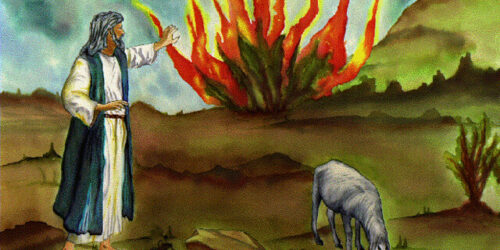As a rabbi I get many questions about both my professional and personal life. One of the most interesting questions I am asked is, “What type of children do I want to raise?” Do I want them to go to a good college (if affordable, yes)? Do I want them to be well off? (nice, but not necessary). Do I want them Jewish? (Duh?). What do I want most for them? The answer is contained in this story:
In the days when an ice cream sundae cost much less, a 10-year-old boy entered a hotel coffee shop and sat at a table. A waitress put a glass of water in front of him and waited for his order.
“How much is an ice cream sundae”
“Fifty cents,” replied the waitress.
The little boy pulled his hand from his pocket to study a number of coins in it.
“How much is a dish of plain ice cream?”
Some people were now waiting for a table and the waitress was a bit impatient.
“Thirty five cents,” she said, a little brusquely.
The little boy again counted the coins and said, “I’ll have the plain ice cream.”
The waitress brought the ice cream, put the bill on the table and walked away. The boy finished his ice cream, paid the cashier and departed. When the waitress came back, she picked up the empty plate and then swallowed hard at what she saw. There, placed neatly beside the empty dish, were two nickels and five pennies, fifteen cents, the difference between a scoop and a sundae – her tip.
I want them to be compassionate enough to think a person, overworked and not very likable, is still more important than fudge and whipped cream.
Each of us is the main character in the story of our lives. We share ourselves with others by telling our stories and it is through stories that we often learn the greatest lessons. We live within the framework of stories about success and failure or good and evil. Our self perception is seen through these narratives.
There is a reason that the Torah begins with stories. The entire book of Genesis and the first half of the book of Exodus tells the story of our people. These stories have a power that transcends times and history. Our history changed at Sinai. With revelation came law. The law forms the foundation of our religious practice and belief but it does not speak to our aspirations and yearnings. We need law and observance for continuity. However we need our stories for our souls.
The family is the foundational building block of our religion. The primary values of our tradition are woven into the fabric of the family dynamic. We learn this from the logic sequence of the “Shma,” – “Hear Israel, the Lord is our God, the Lord alone…You shall love your God with all your soul…You shall teach this diligently to your children.” The responsibility of teaching the concept of loving God is given to parents. Our tradition teaches that we show our love of God by performing “Mitzvot.”
Stories attached to “Mitzvot” help us understand and apply the law. These stories form the narrative of our individual Jewish histories and become the cornerstone of our Jewish identity.
People come to me seeking help. They are often sad, depressed and desperate. They want to stop hurting. They want to keep their demons at bay. They want to find fulfillment. Invariably I will tell them that there are no short-term cures. Sometimes it takes “as long as you have had the pain” to resolve it. But I can prescribe something for the short term, something that will take away the fear and frustration; keeping you sane while you get the long-term help. It is called “helping others.” Find an organization that provides immediate care for the poor, the sick or the homeless. I tell them to find someone who needs you and feed them, clothe them or help them out of their misery. I have tried this. It works.
How do we create caring children? We start with ourselves. People ask me what kind of person I aspire to be. I say to them, “Let me tell you a true story:” For stories are sometimes more effective than advice. This comes by the way of Bob Thobol – from the Giraffe Project.
During my second month of nursing school our professor gave us a pop quiz. I was a conscientious student and had breezed through the questions, until I read the last one:
“What is the first name of the woman who cleans the school?”
Surely this was some kind of joke. I had seen the cleaning woman several times. She was tall, dark haired and in her 50’s. But how would I know her name? I handed in my paper, leaving the question blank. Before class ended, one student asked if the last question would count toward our quiz grade.
“Absolutely” said the profession. “In your careers you will meet many people. All are significant. They deserve your attention and care, even if all you do is smile and say hello.”
I’ve never forgotten that lesson. I also learned her name was Dorothy.







